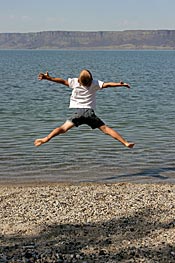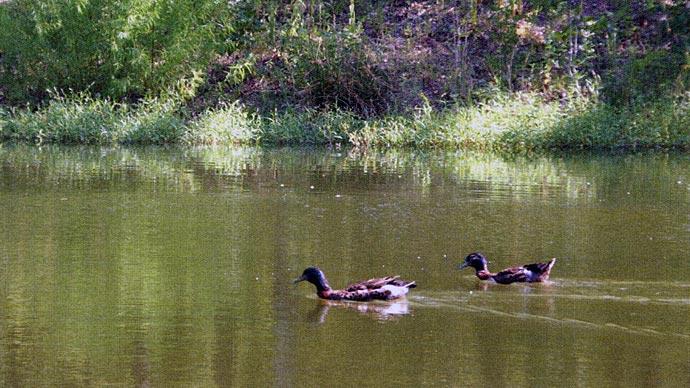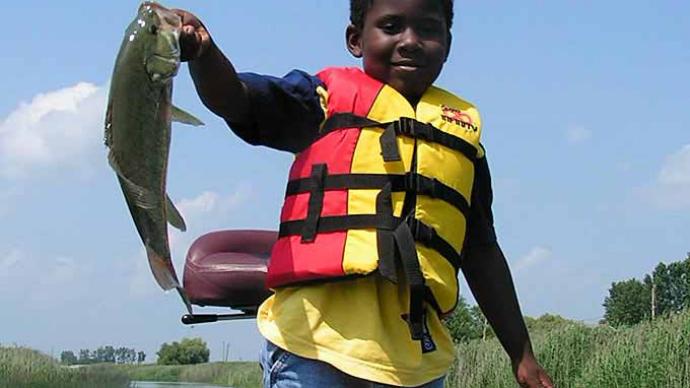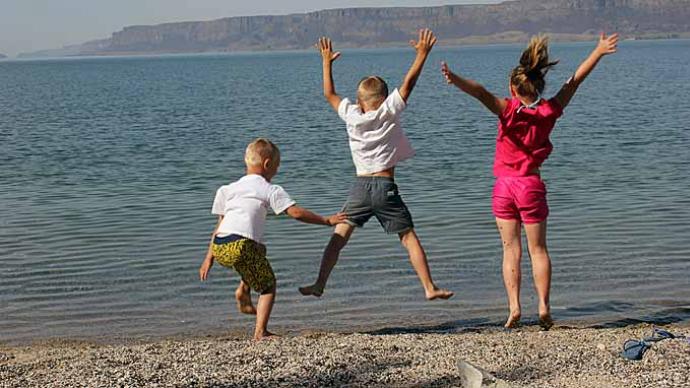
Things were much simpler when I grew up, which is good. However, taking a simple approach to teaching a youngster how to fish is much better than going about it the way many adults do today.
While it is true that young people are much more educated about many things than many older adults were when they were their age, that doesn't mean that using methods to teach a young person how to fish should begin with teaching them how to cast a baitcasting reel, the difference between a spinnerbait and a crankbait, or how to run a trolling motor. Sure, many boys and girls aged 10 to 15 can handle those tasks reasonably well and learn quickly. But if young people aren't taught the basics of fishing, they will soon lose interest and find something else to do with their time.
A good example of that was a recent conversation with a neighbor's 15-year-old son. The boy saw me getting my tackle ready on my front porch for another trip and wandered over to see if I could help him with a baitcasting reel he was having trouble with. After disassembling the real and studying the gears, spool shaft, and star drag, I determined that the star drag was the problem. Unfortunately, the boy got the reel second-hand, and someone had taken it apart and lost some spacers on the star drag before they gave it to him.
The reel not working correctly wasn't the only problem. The problem was that the boy, as much as he wanted to, did not know a thing about baitcasting reels, what the tension nut was for, nor how to cast lures of various weights under various wind conditions. He wanted to know, but somewhere between first learning to catch a fish of any kind on any type of equipment and to try to use a baitcasting rod and reel, he had become lost in bewilderment. Talking further, I realized that his "first" experiences at fishing were with the more sophisticated equipment, not cane pole, spincast, or spinning gear. It took me back to when I learned to ride a bicycle. I started with a tricycle, graduated to a bicycle with two auxiliary side wheels, and finally to the bicycle itself.
I think the best way to start a youngster fishing is with a cane pole - a simple piece of line tied to the end of a pole, a bobber, pinch weight, and a perch hook. Teach them to love to catch fish, not how to cast. Once they have learned the fun of fishing, it will be much easier to graduate to a spincast, spinning, or baitcasting reels.
After all, it is the fun of fishing that should be the driving force that brings all of us to the banks of a creek, a small lake, or a large reservoir. If it isn't fun for a youngster, don't count on them wanting to come back to try it again.
Once they know the thrills of feeling and fighting a fish on the end of a cane or fiberglass pole and become old enough to move to more sophisticated equipment such as a spincast and spinning reel, they will be closer to being able to master the art of using baitcasting equipment.
And if you've followed that path teaching a young person how to fish, stop for a moment and think about what you have accomplished. I can tell you exactly what you have accomplished.
First, you have taught the youngster how to enjoy catching fish with the simplest equipment. Then you have taught the youngster how to use a spincast reel with adequate efficiency, and then you have taught them how to learn the ins and cuts of spinning and baitcasting gear. Over time, you have taught the youngster how to use all the reels and rods they may encounter throughout the rest of their lives.
On the other hand, had you started them out at, say, age 8, 12, or 15 and put a baitcasting rig in their hands as their first fishing gear, you have taught them how frustrating it is to use fishing equipment they are not ready for. I don't know of an angler I've ever met who picked up a baitcasting rod and reel, turned on a depth finder and studied its window, or pushed the start button on a trolling motor the first time out who knew exactly how to operate those types of equipment.
Learning to fish and how to use today's equipment should start as a fun experience and graduate into a learning experience. Take the fun out of it and try to give a youngster a cram course; the results will likely be one lost future angler.



